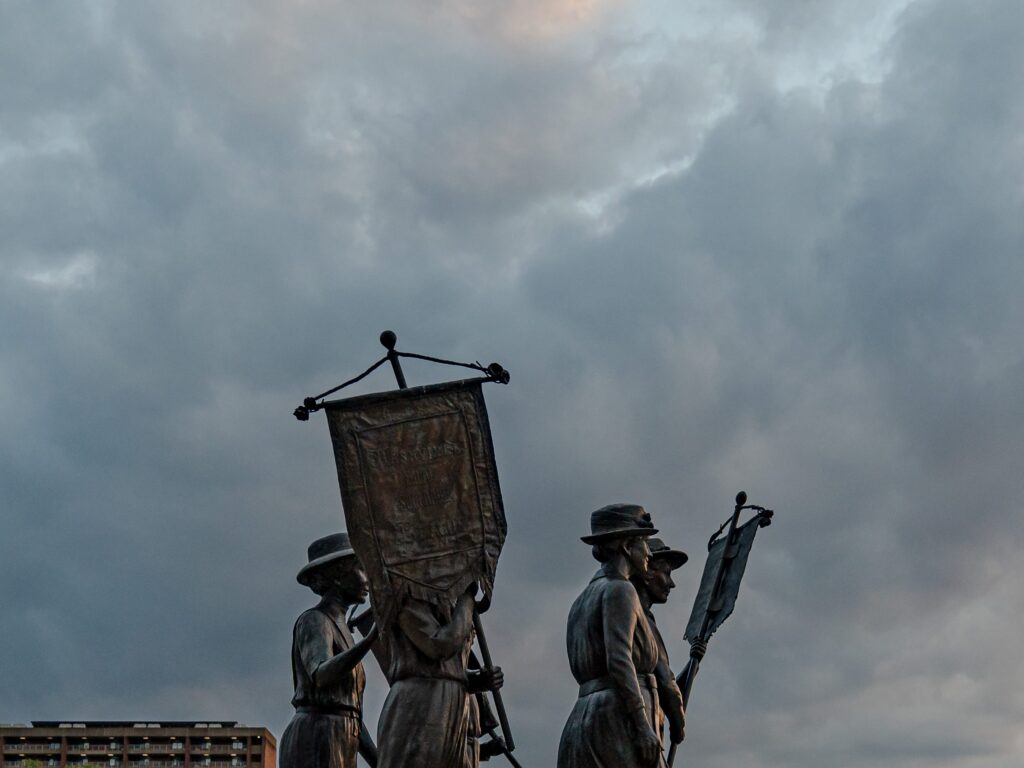The article discusses the historical context of women’s suffrage in the U.S., specifically the ratification of the 19th Amendment, which was heavily debated in Nashville over a century ago. An influential figure in this debate was Tennessee Rep. Harry Burn, who, after receiving a letter from his mother, changed his vote in favor of the amendment, allowing women the right to vote.
Recently, the topic of women’s suffrage resurfaced when certain leaders in the Communion of Reformed Evangelical Churches (CREC), a patriarchal Christian nationalist group, suggested repealing the 19th Amendment. This organization, which has gained traction since its establishment, promotes a return to traditional gender roles and household voting, where a family unit casts a single vote. Their views echo a desire for a more theocratic governance structure in society.
Critics, including other Christian leaders, express concern that such movements threaten women’s rights and are indicative of a broader push for Christian nationalism. This shift, marked by recent political trends, indicates a normalization of once-fringe ideas within mainstream discourse.
As the article highlights the personal experiences of members within CREC and their rationalizations for adhering to these beliefs, it also notes the firm opposition from groups like the League of Women Voters, which advocates for equal voting rights and democracy. The article concludes by reflecting on how viewpoints have changed, suggesting a troubling shift towards acceptance of extremist ideologies in the current political landscape.



